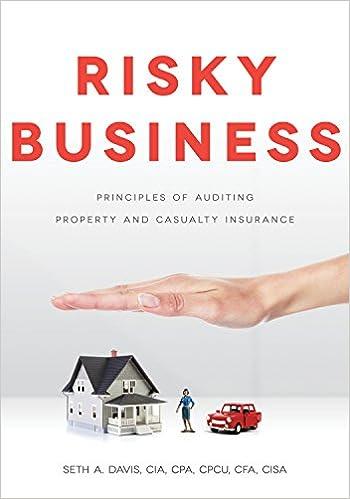
Case Study - Mean Screens USA, Inc. Donna Stoneman was the CFO of Mean Screens USA, Inc. Headquartered in Seattle, Mean Screens USA was the sales and distribution division of Mean Screens, Ltd., a privately owned Chinese company founded in 2007 that produced inexpensive LCD screens manufactured in China for sale in the US market. By 2009, rapid growth necessitated a significant infusion of capital. A decision was made to spin off a portion of Mean Screens USA in an IPO. Thomas was becoming increasingly angry at Donna's refusal to work with him. He threatened her bonus and even told her that the long-term viability of the company was at stake. Donna was sickened. She began to wonder if Thomas was naive or just unethical. She was unwilling to sacrifice her own principles and integrity, not to mention her CPA license, but she began to fear that her job was on the line Since the beginning of the company, Donna had worked together closely with Thomas Yee, Mean Screens USA's division president, to build the division. She continued to play an instrumental role in the company's subsidiary initial public offering (IPO) process, travelling around the world to describe the investment opportunity to potential investors. The reserves issues had still not been resolved when Thomas came to Donna with a third request that he hoped would appease his most important investors. He wanted to ask the parent company for favorable transfer prices for a year or so in order to shift some earnings from the parent company to the subsidiary. He would agree to reverse the favorability of the transfer prices when Mean Screens USA could afford higher prices. However, Donna was troubled by the earnings projections that Thomas had instructed her to present. She felt the forecast was extremely aggressive. She was uncomfortable presenting numbers that she did not think were realistic, and she was concerned that there would be a backlash from investors if Mean Screens USA failed to meet the projections. She expressed her concerns to Thomas who agreed to lower the projections slightly, but he still kept them well above what Donna believed was realistic. Donna did not even know how to respond. Was Thomas this ignorant about financial reporting requirements, or was he just basically dishonest? If the latter, she had to con- sider whether or not she wanted to work for someone who was capable of such dishonesty. But she was also worried about her bonus and, ultimately, her job. She had a family to support, and with the country in a severe recession, it would probably not be easy to find another job. Donna decided to accept Thomas's revised numbers. She felt she had done all she could, as she explained: Questions 1. Assume that Donna is right to resist Thomas' demands for aggressive accounting. What are her options and the consequences of each of the options? 2. How should Donna go about winning the argument if she attempts to convince Thomas that it would be wrong to implement the financial reporting alternatives that he has been proposing? The earnings projections were not officially under my jurisdiction. I really had no authority to change them. And by definition forecasts are not black and white. It was possible that Thomas's numbers were on target. A successful IPO was launched in May 2009, and Mean Screens USA, Inc. was listed on NASDAQ. Mean Screens, Ltd. retained 51% of the public shares of the subsidiary. In the first fiscal year, however, as Donna had feared, Mean Screens USA missed its profit projections by more than 30%. Thomas was alarmed by the shortfall. He asked Donna what they could do to increase earnings so that the company's financial statements would mirror the forecasts, and in this way pacify the new investors. His first idea was to deem some receivables as obviously collectable to avoid setting up reserves. Donna thought that the idea was ridiculous. She told Thomas that she could not falsify financial statements for any reason. Thomas insisted that there was no falsification. The setting up of reserves was a gray area of accounting that depended on judgment. Donna explained that the company was now public, and the audits would be more thorough. The auditors would surely insist on the establishment of reserves for uncollectible receivables. Thomas was persuaded that perhaps this plan was impractical, so he suggested another possibility. He suggested that they postpone the writing off of inventory that had likely become obsolete. Again, Donna rebuffed his request. 3. Think about Thomas' main arguments (reasons and rationalizations) that she is trying to counter. What is at stake for the key parties (i.e., Donna, Thomas, its employees, and shareholders)







